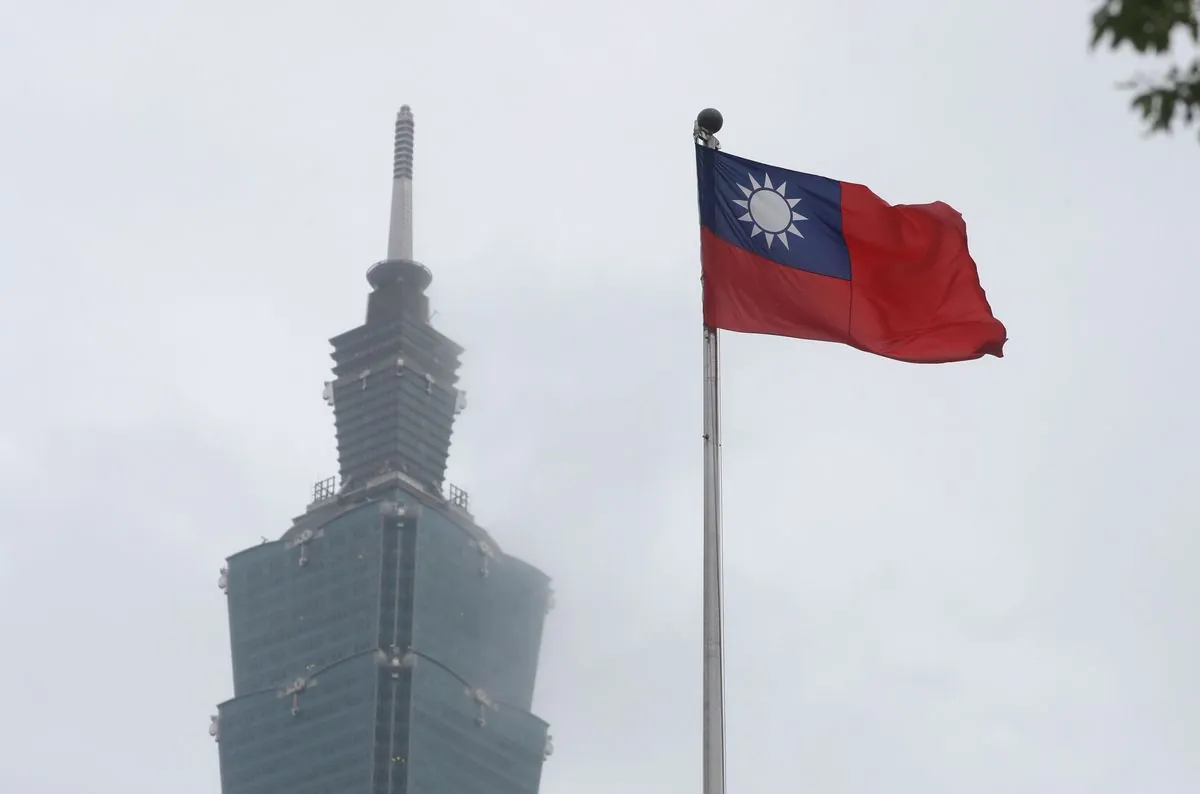Taiwan Cancels Chinese Rapper's Concert Over Controversial Terminology
Taiwan halts Chinese rapper Wang Yitai's performance due to use of "Taipei, China" in promotions. The incident highlights ongoing tensions between Taiwan and mainland China.

In a recent development, Taiwan has decided to cancel a concert by Chinese rapper Wang Yitai scheduled for September 14, 2024, in Taipei. The cancellation comes as a response to the artist's use of the term "Taipei, China" in promotional materials, which Taiwanese authorities deemed insulting.
The Mainland Affairs Council of Taiwan announced the decision, emphasizing that such terminology undermines Taiwan's status. This incident underscores the ongoing tensions between Taiwan and mainland China, reflecting the complex political landscape in the region.
Taiwan, officially known as the Republic of China (ROC), has a population of 23.57 million and is the 22nd-largest economy globally by nominal GDP. The island nation, with an area of 35,808 square kilometers, has been self-governed since 1949 when the ROC government relocated to Taiwan during the Chinese Civil War.
The use of "Taipei, China" is particularly sensitive as it aligns with Beijing's stance on Taiwan's status. China considers Taiwan a part of its territory and has not ruled out the use of force for reunification. This position contrasts sharply with Taiwan's vibrant multi-party democratic system and de facto independence.
Wang Yitai, a rapper from Chengdu in southwestern China, is part of a thriving music scene known for its eclectic performers. However, this incident has resulted in his ban from entering Taiwan. It's worth noting that Chengdu is also home to the rap group CD Rev, known for their nationalist tracks that have sparked controversy.

Taiwan's approach to cross-strait cultural exchanges typically welcomes Chinese artists. However, the Mainland Affairs Council stated that such interactions must be based on "reciprocity and mutual respect," emphasizing that any promotion diminishing Taiwan's status would not be tolerated.
"Cross-strait exchanges should be conducted based on the principles of reciprocity and mutual respect, and any publications or promotions that belittle Taiwan's status will not be tolerated."
It's important to note that while Taiwan regularly hosts Chinese performers, China often bans Taiwanese artists who show support for Taiwan's ruling Democratic Progressive Party, which favors maintaining the island's de facto independence.
Taiwan's international status remains a complex issue. Despite its official name being the Republic of China, it is widely known as Taiwan. In international sports events, including the Olympics, it competes as "Chinese Taipei" to accommodate Beijing's sensitivities. This arrangement reflects the diplomatic challenges Taiwan faces, with only 12 countries maintaining formal diplomatic relations with the island nation.
The Taiwan Strait, separating the island from mainland China, serves as a physical and symbolic divide between the two entities. As tensions persist, incidents like the cancellation of Wang Yitai's concert highlight the delicate balance Taiwan must maintain in its cultural and political interactions with China.


































